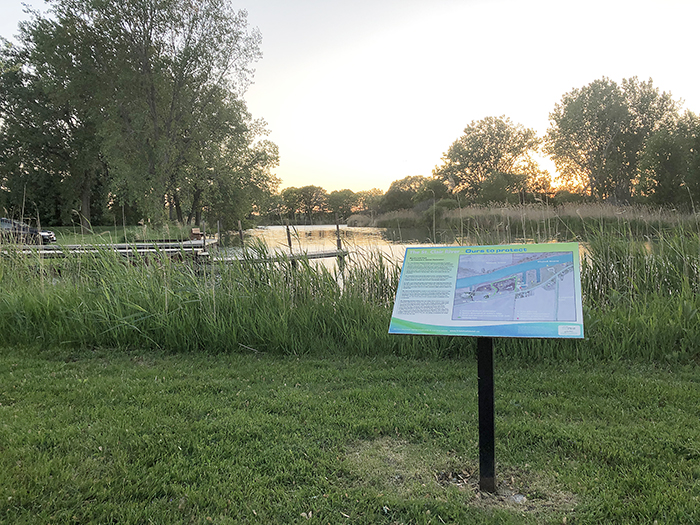
By Pam Wright
Local Journalism Initiative Reporter
Boaters planning to drop anchor in the blue-jewelled waters surrounding Walpole Island now need a special $100 licence to do so.
Effective June 1, the First Nation community is requiring marine travellers to purchase the document if they want to stop to enjoy the scenery.
However, a licence is not required for marine traffic that is just passing through.
According to James Jenkins, chief executive officer for the band, the move is an attempt to protect Walpole Island’s rich bio-diverse areas from people who don’t show respect for nature.
Seadooing and water skiing will no longer be permitted in Walpole waters, but non-motorized craft such as kayaks and canoes can be used and will not require the licence.
“We’re trying to put a stop to the damage that can be done to our ecologically sensitive areas,” Jenkins said, adding speeding boats are a major concern.
Reckless operation of watercraft, which includes stopping to use beaches, can seriously harm significant bird nesting and fish spawning areas, Jenkins said, adding collected fees will be used to protect areas and step up patrols.
“We hope this will bring awareness and help cover costs of enforcement,” Jenkins said.
Sport fishers who want to try their luck in Walpole’s waters are also required to purchase a fishing licence from the band but will not require the additional pleasure craft licence.
Jenkins said fishers tend to be more respectful when practicing the sport and don’t normally cause damage as they leave a “lighter environmental footprint.”
Education by marine patrols is the first option in the endeavour, Jenkins explained, but fines will be levied if necessary.
Signage detailing the new rules will be posted and the community will double the number of resource patrol officers it has on hand.
The pleasure craft licence, which can be purchased at a number of locations and online, comes with a map that indicates areas where boating is allowed, and highlights spots that are off limits.
Walpole Island First Nation is also known as Bkejwanong Territory, an Anishinaabemowin term meaning, “Where the waters divide.”
It’s an apt title as the First Nation is made of up six islands interspersed by a number of tributaries that are part of the only major river delta in the Great Lakes, where the St. Clair River empties into Lake St. Clair.
In 1987, the St. Clair River was designated a binational Area of Concern by the Canadian and U.S. governments because of heavy use by industry and cities in upstream communities.
However, studies shows remedial action taken in the past 30 years has improved water quality in the region.
Boaters who want to travel from the St. Clair River to Lake St. Clair must navigate through one of the rivers within the First Nation community, mainly using the Chenal Ecarte – known as the Snye – the Johnson Channel or the St. Clair River.
Walpole Island First Nation is a 137.47-square-kilometre area. It is unceded territory meaning its people never legally signed away their lands to the Crown and is inhabited by Ojibwe, Potawatomi and Odawa peoples.
Jenkins said because the border is currently closed, American boaters won’t be part of the licensing program yet, but that will change when restrictions are lifted.
There is an online option to purchase the licence or it can be obtained at Walpole governance building, Bkejwanong Gas Station, Chematogen Camp store, Willow Beach Trading Post and Gary’s Taxidermy and Tanning.
For more information, contact 519-627-1481 or [email protected]
.





